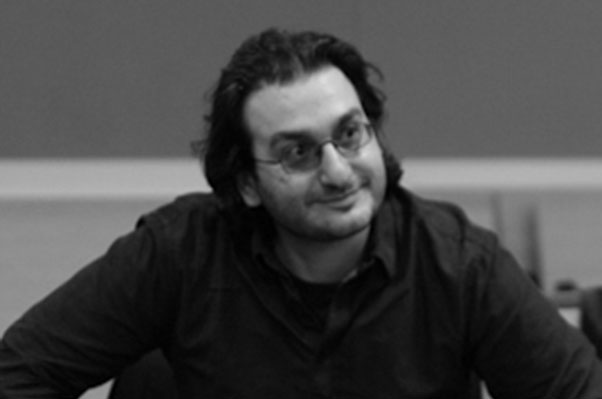
Just one week now until Arab Nights opens at the Soho in London - and this week it's the turn of Egyptian storyteller Chirine El Ansary to share her thoughts... This is an open letter to the respectable Egyptian citizen, a father, a mother, an aunt, an uncle... Those who carefully brought us up, with much love indeed.
Those who responsibly scolded us for lying, while meticulously teaching us never to be true to ourselves, explaining over and over again that 'who we truly were' was not acceptable and that in order to become decent members of this decent society we had to be shaped and reshaped, moulded and remoulded to fit in.
The respectable Egyptian citizen, a father, a mother, an aunt, an uncle,
who filled with fear and a destructive-protective instinct, desperately tried convincing us that there was no "way out" or rather that the only "way out" was in fact a "way in" based on permanent denial and everlasting compromise. Denial and compromise until Death comes in.
Not physical Death, but the insidious Death of the soul, the heart, the will...
Whatever you want to call "it".
"It" that makes us unique individuals and keeps us alive.
A few managed to resist.
They made difficult choices and had to bear the consequences : pointed fingers, loneliness, alienation, harassment, accusations of having betrayed their own society, of not being real Egyptians, of being influenced or manipulated. In the mean time, many others, too exhausted to offer more resistance, gave in.
They turned into puppets, reluctantly leading a life in which decisions and choices strengthened a rotten, corrupt system profiting a handful of worthless criminals.
See no evil, hear no evil, speak no evil...and rot...and die.
Kan yama kan,
Once upon a time
There was this lovely very young woman
There was this lovely very young man
She was learned in poetry, music, philosophy, mathematics, computing,
He was learned in poetry, music, philosophy, mathematics, computing,
She spoke several languages,
He spoke several languages,
She was and idealist,
He was an idealist,
The One Thousand and One Stories they knew made them want to speak the truth, Become freedom fighters.
They would save their country and change the World!
They were both Shahrazad.
Yes, he was Shahrazad too,
For is it possible to sacrifice a woman without sacrificing a man?
Kan yama kan
Once upon a time
There were all these older experienced good Egyptian citizens
Who knew Wrong from Right
Who knew Evil from Good
Who knew Ugliness from Beauty
They had a strong sense of Morality and had to protect it, no matter what,
Even If it meant the collapse of Integrity and Humanity
Even if it meant turning the hope-filled roads into dead-ends.
Conservatism, Fundamentalism, Wahabism, Salafism, Bla-bla-ism,
So many isms that we like to accuse.
But what about the sweet respectable citizens, who carry no "isms" but nevertheless twisted the truth and accepted the unacceptable?
They who for decades turned a blind eye and a deaf ear on the horrors that were taking place, condemning the few who dared speak,
thus making possible the inconceivable, Snipers
Thugs
Expired tear gas
Cold blooded murders for Security's sake
Street children turned kid soldiers
Officially approved rapes
Virginity tests they had somehow been silently conducting for years.
Chirine El Ansary | Wednesday November 14th 2012













